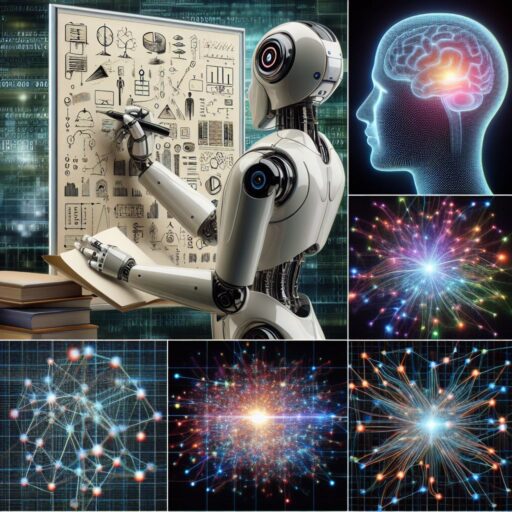Introduction:
Machine learning is revolutionizing industries across the globe, from healthcare to finance, and it’s no wonder why. With its ability to analyze vast amounts of data and make accurate predictions, machine learning is reshaping the way we work and live. In this comprehensive guide, we’ll delve into the world of machine learning, exploring its fundamentals, applications, and potential impact on society.
What is Machine Learning?
At its core, machine learning is a subset of artificial intelligence (AI) that focuses on enabling computers to learn from data and improve their performance over time without being explicitly programmed. Instead of relying on static rules and instructions, machine learning algorithms adapt and evolve, making them incredibly powerful tools for tackling complex problems.
Types of Machine Learning:
There are three main types of machine learning: supervised learning, unsupervised learning, and reinforcement learning.
- Supervised Learning: In supervised learning, the algorithm is trained on a labeled dataset, where each input is paired with the corresponding output. The algorithm learns to map inputs to outputs, making it ideal for tasks like classification and regression.
- Unsupervised Learning: Unsupervised learning involves training the algorithm on an unlabeled dataset and letting it discover patterns and structures on its own. This type of learning is useful for tasks such as clustering and dimensionality reduction.
- Reinforcement Learning: Reinforcement learning is a bit different, as the algorithm learns through trial and error by interacting with its environment. It receives feedback in the form of rewards or penalties, allowing it to learn optimal strategies for achieving its goals.
Applications of Machine Learning:
The applications of machine learning are vast and varied, spanning virtually every industry imaginable. Here are just a few examples:
- Healthcare: Machine learning algorithms can analyze medical images, predict patient outcomes, and assist in disease diagnosis and treatment planning.
- Finance: Machine learning is used for fraud detection, risk assessment, algorithmic trading, and customer segmentation in the finance industry.
- Marketing: Marketers leverage machine learning for personalized recommendations, targeted advertising, and customer churn prediction.
- Transportation: Self-driving cars rely heavily on machine learning algorithms to perceive their surroundings, navigate routes, and make driving decisions.
- Retail: Machine learning powers product recommendation systems, demand forecasting, and inventory optimization in the retail sector.
Impact on Society:
The impact of machine learning on society is profound and far-reaching. While it presents opportunities for innovation and advancement, it also raises ethical and societal concerns, such as privacy, bias, and job displacement. As we continue to harness the power of machine learning, it’s essential to consider its implications and ensure that its benefits are distributed equitably.
Conclusion:
Machine learning is a transformative technology that’s shaping the future of our world. By understanding its fundamentals, applications, and impact on society, we can better appreciate its potential and harness its power for good. Whether you’re a beginner or an expert in the field, there’s always something new to learn and explore in the exciting world of machine learning.






